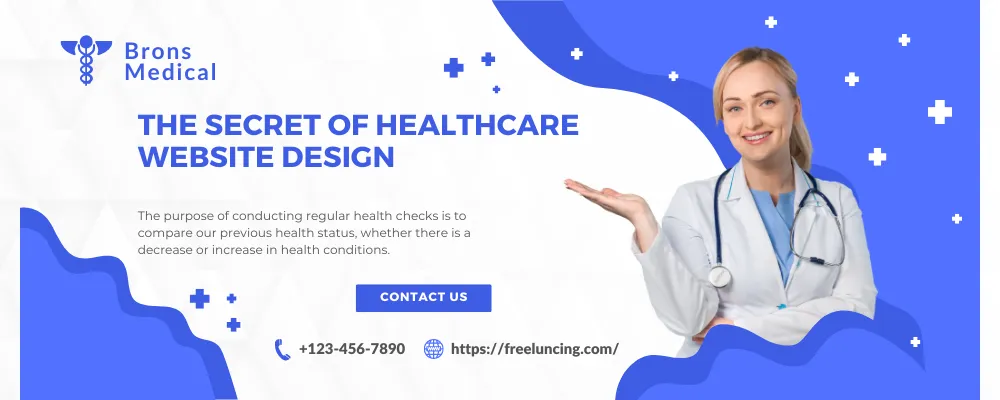User-Friendly Navigation:
Clear and Concise Content:
Doctor’s Profiles and Testimonials:
Integration with Social Media:
Hospital App Design
Designing a hospital app requires a user-centric approach, with a focus on providing patients with a seamless and Healthcare Website Design user-friendly experience. Here are some key
design considerations for a hospital app
Simple and Intuitive Navigation:
The app should have a simple and intuitive navigation system that makes it easy for patients to find the information they need. A clear menu bar with easily identifiable icons and drop-down menus can help to simplify the navigation process.
Personalization:
The app should be personalized to the user’s preferences and needs. Customizable settings and personalized Healthcare Website Design content can make the app more engaging and relevant to the user.
Accessibility:
The app must ensure accessibility for all users, including individuals with disabilities. Incorporating accessibility features such as alt text for images and a high-contrast mode can improve the user experience for all users.
Quick Access to Information:
Patients should be able to access important information quickly and easily. The app should feature easy-to-use Healthcare Website Design buttons or widgets that allow patients to quickly access their medical records, test results, and appointment schedules.
Online Booking and Payment:
The app should allow patients to book appointments and make payments online. This can save patients time and hassle and streamline the administrative process for the hospital.
Interactive Features:
Interactive features such as chatbots or virtual assistants can provide patients with real-time support Healthcare Website Design and assistance. These features can help to improve patient engagement and satisfaction.
Push Notifications:
Push notifications can be used to remind patients of upcoming appointments or to provide them with relevant health information. These notifications can help to improve patient engagement and adherence to treatment plans.
By incorporating these design considerations Healthcare Website Design into a hospital app, hospitals can create an engaging and user-friendly platform that enhances the patient experience and improves overall healthcare outcomes.
(FAQs)
A: The primary focus of a healthcare website should be the user experience. The website should be easy to navigate, visually appealing, and provide relevant information to patients.
Q: What are some essential features to include on a healthcare website?
A: Some essential features to include on a healthcare website are clear and user-friendly navigation, high-quality images and videos, online appointment booking, doctor and staff profiles, patient testimonials, and a blog section for health and wellness information.
Q: Why is responsive design important for healthcare websites?
A: Responsive design is essential for healthcare websites because patients are increasingly using mobile devices to access healthcare information. A responsive website design ensures that the website is accessible and functional on different devices and screen sizes.
A: A healthcare website can be made more engaging for patients by incorporating interactive features such as chatbots or virtual assistants, providing patient education resources, and using patient testimonials to showcase positive experiences.
Q: How can a healthcare website ensure patient privacy and security?
A: A healthcare website can ensure patient privacy and security by implementing secure data storage and transmission, using SSL certificates, and following industry-standard security protocols.
Q: What are some design considerations for healthcare websites that serve a diverse patient population?
A: Design considerations for healthcare websites that serve a diverse patient population include incorporating accessibility features such as alt text for images, using culturally appropriate language and images, and providing translated content for non-English speaking patients.
Q: How can healthcare website design impact patient satisfaction?
A: Healthcare website design can impact patient satisfaction by creating a positive user experience that is easy to navigate and provides relevant information. A well-designed website can also help to build trust between patients and healthcare providers.
Conclusion
Designing a healthcare website requires careful consideration of various elements. A user-friendly navigation, clear and concise content ,appointment booking and contact forms, doctor’s profiles and testimonials, security and compliance, and integration with social media are crucial to ensure that the website is effective in communicating the healthcare provider’s services and delivering a positive patient experience. By keeping these elements in mind, healthcare providers can design a website that is informative, engaging, and effective in attracting and retaining patients.




